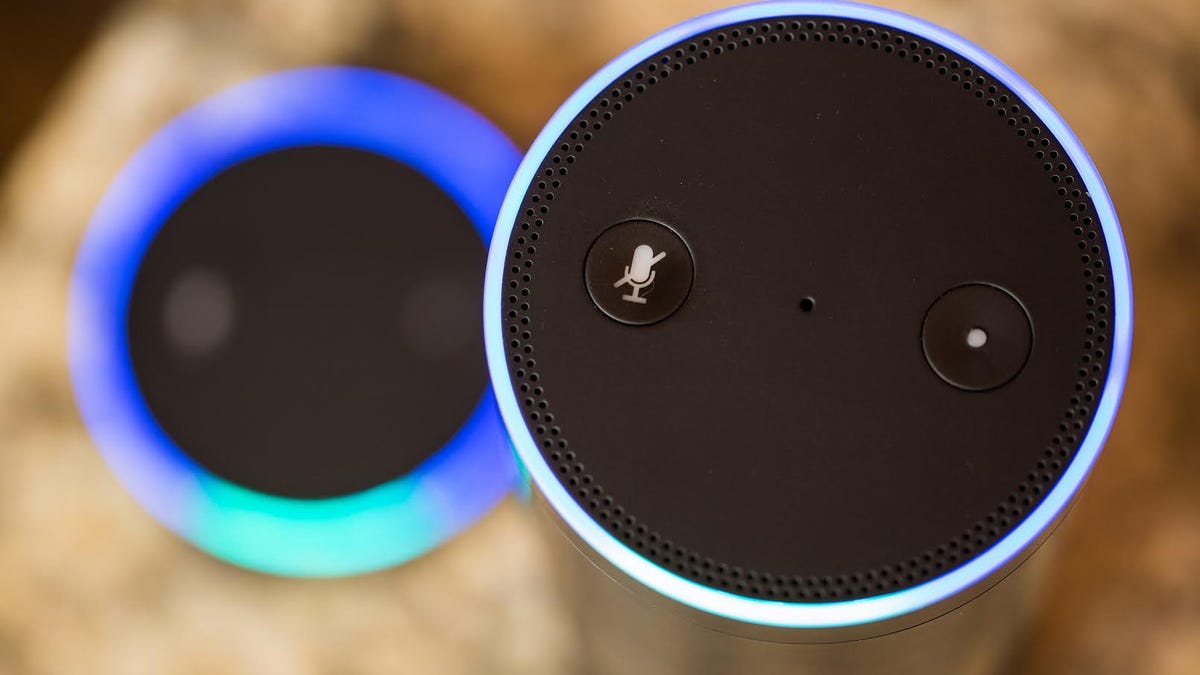 Why You Can Trust CNET
Why You Can Trust CNET Amazon's 'ESP' feature is here to make Alexa a better listener
The "Echo Spatial Perception" update is now live for all of Amazon's Echo and Echo Dot smart speakers. With ESP, only the speaker that's closest to you will respond to your command

The Amazon Echo and Echo Dot smart speakers are pretty sharp listeners -- so sharp, that if you have more than one of them in your home, they'll often both pipe up whenever you say the wake word, "Alexa." It gets annoying fast (something we've learned first hand at the CNET Smart Home, where the virtual voice assistant Alexa reigns supreme).
Giving your different speakers different wake words is one fix ("Amazon" and "Echo" are your other options), but now, Amazon has an even better solution. It's an update called "Echo Spatial Perception," or ESP for short, and it's live right now for all of Amazon's Echo and Echo Dot smart speakers. With ESP, only the speaker that's closest to you will respond to your command.
We tested ESP out with the original Amazon Echo, the first-gen Amazon Echo Dot mini-speaker and the new, second-gen Echo Dot (watch the video above to see it in action). It worked like a charm each and every time. Say "Alexa," and all three will light up, but only the one that's closest will actually respond.
The only small drawback to the new approach is that there's now an extra step in between your voice command and Alexa's response. After you ask Alexa a question or give her a command, the speakers will take a moment to figure out which one should take the lead. I didn't notice a delay in most cases, but there were one or two times where the speakers needed to think about it for an extra second or two.
Amazon's made no bones about the fact that it wants its virtual voice assistant in every room of every house. It's even recently begun selling the pint-size Amazon Echo Dot in packs of six and 12 at just 50 bucks a pop (or £50 in the UK). Now, with ESP in play (and countless new Echo Dots shipping out in just a few days), that vision for whole-home, multiroom Alexa controls feels a lot more practical -- and a lot more realistic.

